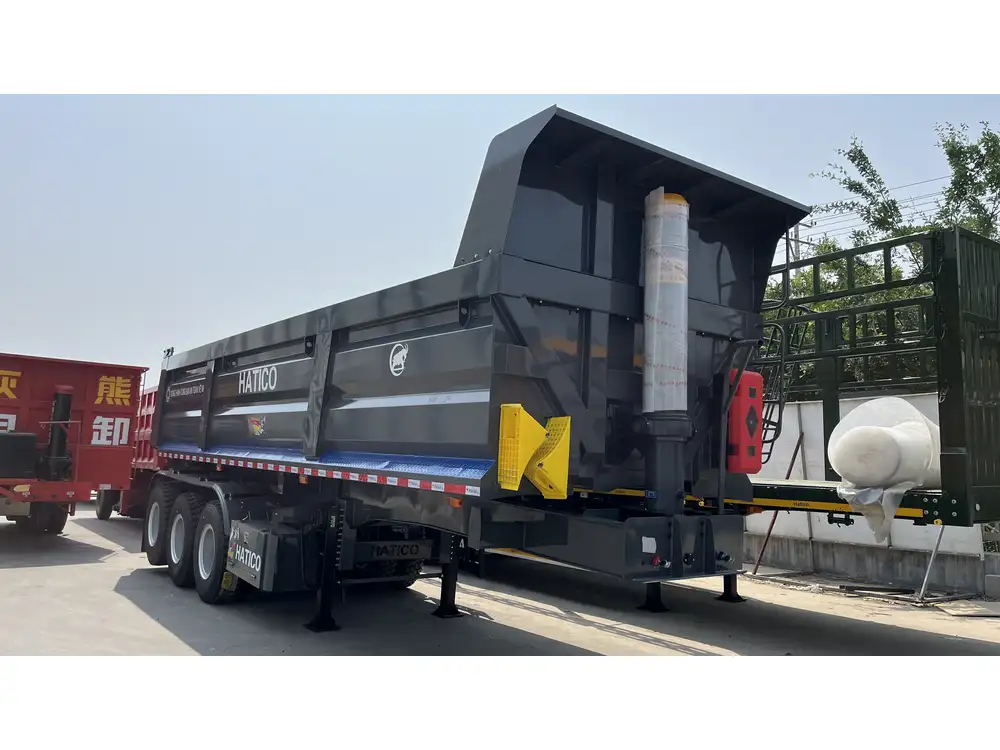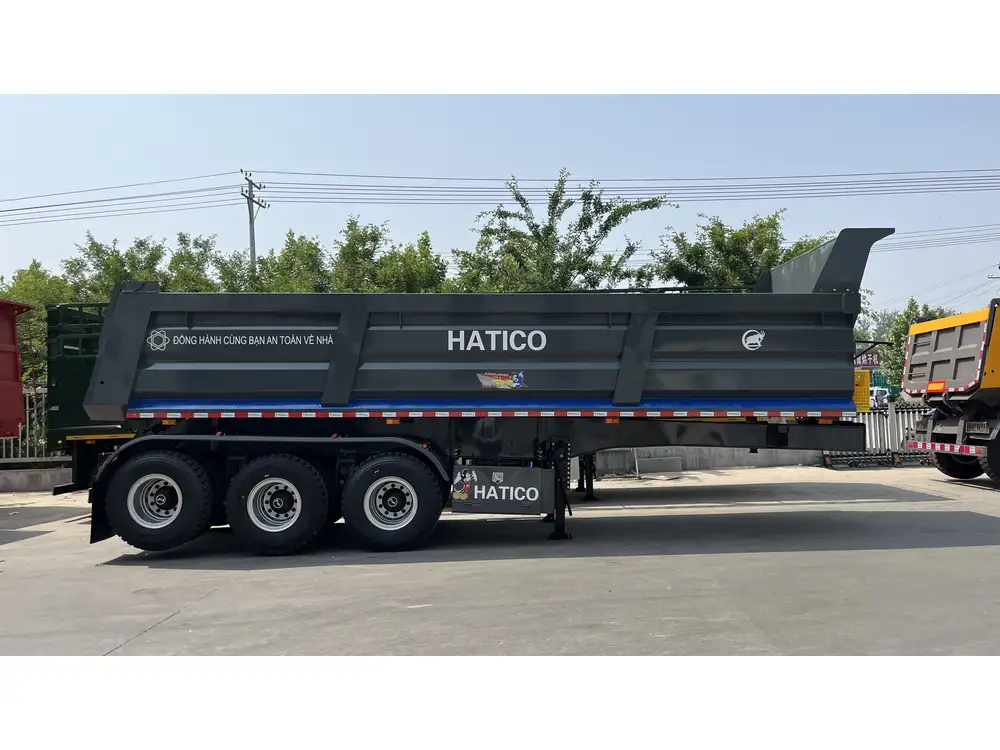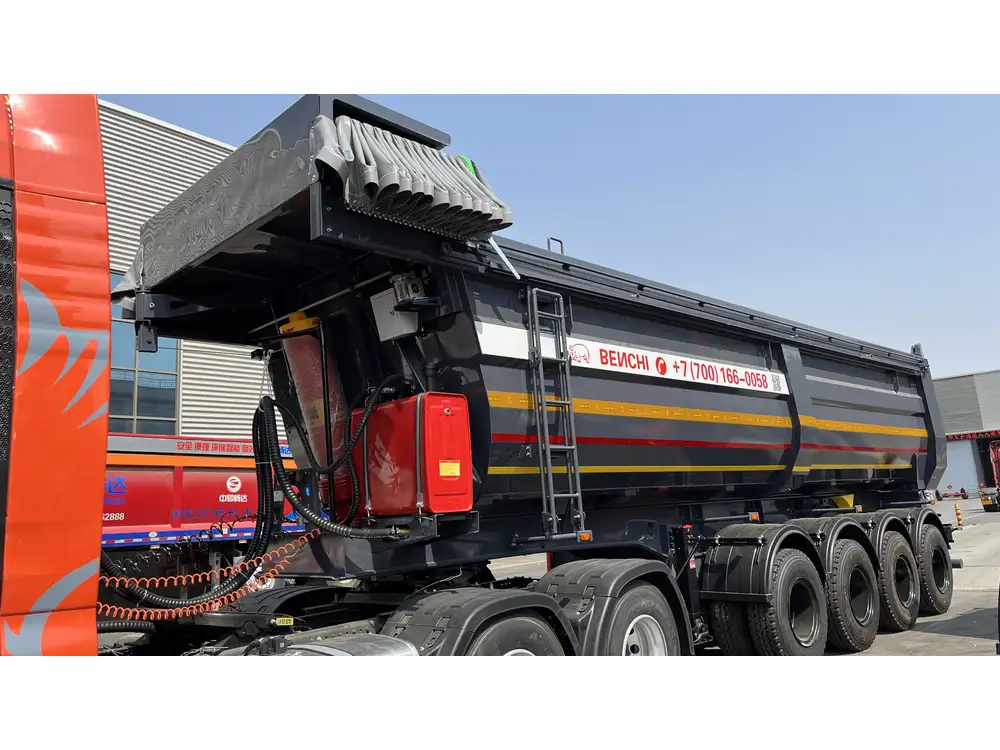In the realm of transportation, the question arises frequently: “Can you haul a semi trailer with a pickup?” This inquiry is not merely about capability; it encompasses safety, regulations, equipment compatibility, and practical considerations. This comprehensive article explores this subject from various angles, ensuring you gain an in-depth understanding of the topic.
Understanding Semi Trailers and Their Specifications
What is a Semi Trailer?
A semi trailer is an integral component of tractor-trailer combinations. Unlike a full trailer, a semi trailer has one end supported by a tractor unit, which means the weight is distributed more effectively. These trailers are typically made from durable materials such as steel or aluminum, optimized for heavy loads. Specifications can vary widely based on design and purpose, with lengths generally ranging from 28 to 53 feet.

Common Types of Semi Trailers
| Type | Description | Usage |
|---|---|---|
| Flatbed | Open and versatile, suitable for oversized loads | Construction, heavy machinery |
| Refrigerated | Insulated and equipped with cooling units | Perishable goods |
| Dry Van | Enclosed and secure. Ideal for general cargo | Consumer goods, retail |
| Tanker | Designed for liquids | Fuel transport, chemicals |
| Lowboy | Low-to-the-ground for easier loading of heavy loads | Transportation of heavy equipment |
Can a Pickup Handle a Semi Trailer?
Payload Capacity of Standard Pickup Trucks
Most standard pickup trucks, such as the Ford F-150, Chevrolet Silverado, and RAM 1500, have impressive towing capacities, usually ranging from 5,000 to 12,000 pounds. However, when it comes to hauling a semi trailer, the capacity largely depends on several factors:
- Engine Power: Higher horsepower equates to better towing capabilities.
- Rear Axle Ratio: A higher ratio allows for more torque, aiding in the towing process.
- Towing Equipment: Hitches must match the load being towed, ensuring safe transport.

Evaluating Compatibility with Semi Trailers
While technically, pickups can haul certain smaller semi trailers (like those designed for lighter loads or specialty designs), they generally lack the torque and structural reinforcement necessary for larger models. Here are the critical components to review:
- Weight Distribution: Proper distribution prevents swaying and ensures balanced handling.
- Brake Controls: Electric brakes on trailers require specialized controls within the pickup.
- Ball vs. Fifth Wheel Hitches: Semi trailers typically use a fifth wheel hitch, while pickups usually employ ball hitches for lighter loads.
Regulatory Considerations
Hauling Regulations by State
Before attempting to tow a semi trailer with a pickup, it is crucial to be aware of local regulatory requirements. Each state in the U.S. has distinct laws concerning vehicle weights, towing capacities, and licensing requirements. Consider these aspects:
| State | Towing Regulation | Notes |
|---|---|---|
| California | No more than 10,000 lbs for standard pickups | Special permits needed for overweights |
| Texas | Allows up to 26,000 lbs without special licensing | May require additional trailer registration |
| New York | Maximum of 10,000 lbs without special endorsement | Commercial trucking regulations apply |

Insurance and Liability
Failing to adhere to hauling regulations can result in severe penalties, including fines and increased liability in case of accidents. Always confirm your insurance policy covers towing activities and assess the potential financial impact before making any commitments.
Pros and Cons of Towing a Semi Trailer with a Pickup
Advantages
- Versatility: Pickup trucks are designed for a multitude of tasks, including towing.
- Availability: Many pickup owners can leverage their vehicles for additional income.
- Ease of Maneuverability: Compared to larger haulers, pickups can navigate tighter spaces.

Disadvantages
- Limited Capacity: Standard pickups often cannot manage heavier semi trailers safely.
- Increased Wear and Tear: Regular towing can lead to accelerated wear on the vehicle.
- Safety Concerns: Improper towing can lead to accidents, endangering lives.
Recommendations for Safe Hauling
Equipment Upgrades
For those who are determined to use their pickup for semi trailer towing, consider upgrading to a more robust model or making modifications, such as:
- Enhanced Suspension Systems: To handle the extra load.
- High-Capacity Hitches: Specifically designed for fifth wheel trailers.
- Braking Systems Upgrade: Necessary for larger trailers to ensure brakes function safely.

Weight Management and Load Distribution
Properly loading the semi trailer is essential to ensure safety. Here are some time-tested strategies:
- Even Distribution: Place heavier items closer to the axle to prevent swaying.
- Secure Cargo: Use appropriate ties and straps to prevent movement during transit.
- Check Weight Limits: Ensure combined vehicle weight is within legal limits.
Frequently Asked Questions
Q1: Is it legal to tow a semi trailer with a pickup?
In many states, the legality depends on the weight of the trailer and the specifications of the pickup. Check local regulations to ensure compliance.

Q2: What is the maximum weight a pickup can tow?
Most standard pickups can tow between 5,000 and 12,000 pounds. However, specialized heavy-duty pickups can exceed these limits significantly.
Q3: Do I need special licensing to tow a semi trailer with a pickup?
This varies by state. Some regions require special endorsements for trailers exceeding certain weights.
Q4: Can I modify my pickup for better towing capabilities?
Yes, many pickups can be customized with stronger hitches and enhanced suspension systems to improve towing. Always consult with an expert before making modifications.

Conclusion
The question of whether you can haul a semi trailer with a pickup necessitates a nuanced exploration of capabilities, legalities, and safety considerations. While traditional pickups may manage smaller trailers, larger semi trailers often exceed these vehicles’ limits concerning weight, braking, and overall structural integrity.
Before proceeding, always consult with certified towing experts, review local regulations, and consider the implications of your decisions on safety and legal accountability. Engaging with professionals knowledgeable in trailers, towing, and vehicle performance can help ensure that you make the most informed choices while safeguarding your financial and physical well-being in the process.
By fully understanding the intricate relationship between your vehicle and the trailer, along with the appropriate precautions, you can navigate this complex terrain with confidence and expertise.



